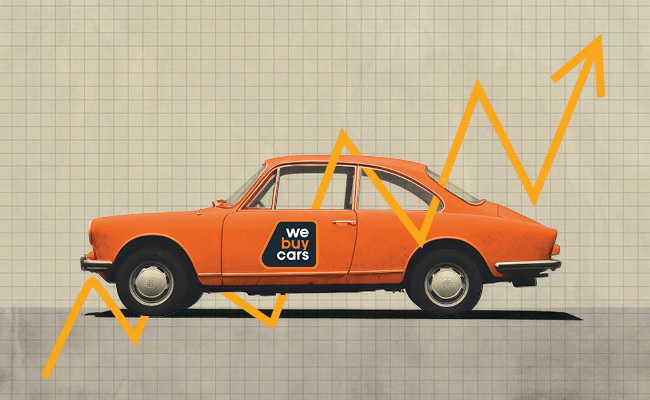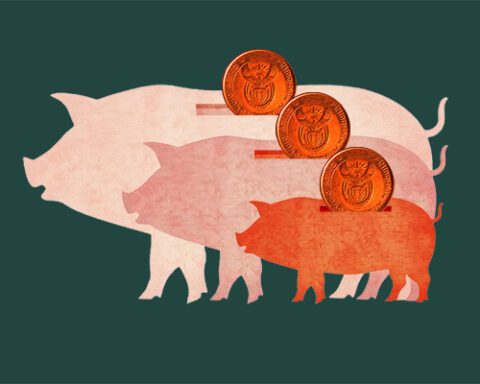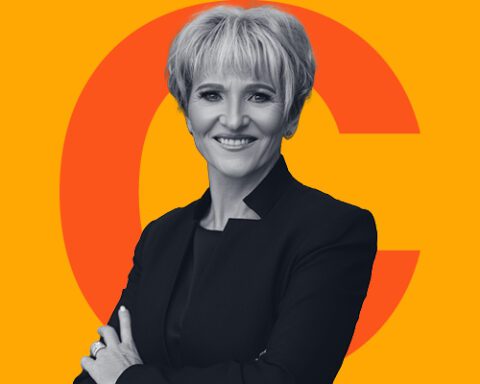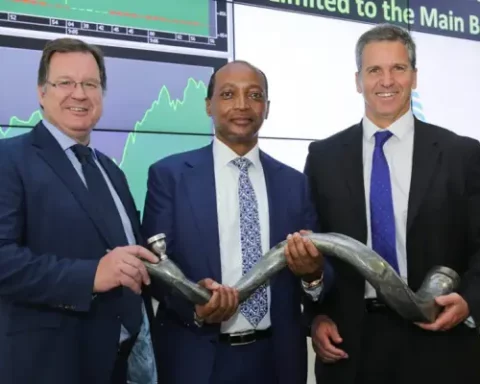There is a number that should be giving second-hand car dealers sleepless nights. An amount, actually, that is not scarily big, but hauntingly small: only R4,500.
That is the average profit WeBuyCars (WBC) makes per vehicle.
Founder and CEO Faan van der Walt shared this statistic with Currency in an interview, and it is the sort of number that sits in the back of your mind, surfacing whenever you drive past a vehicle yard or a downtown mom-and-pop dealership.
Certainly, R4,500 seems incredibly low. Surely dealers of second-hand vehicles – “pre-owned” or “pre-loved”, with some marketing dust – have to make more per car to survive? But as they don’t report their results publicly, it is hard to tell.
WBC, on the other hand, listed on the JSE in April, so its numbers are now out there for all to see. Yet despite the scarily thin margins, WBC’s share price has been on a tear, rising 117% since its listing in April.
Part of the reason for this is that WBC is still a growing business.
The dealership sells nearly 15,000 vehicles a month, 16% more than it was selling every month a year ago. Measured against the official data from eNatis, Van der Walt says his business now accounts for about a 10th of all second-hand car registrations.
The industry is a fragmented one, so getting to a 10% market share organically is no mean feat. And Van der Walt expects this trajectory to continue, with the company aiming for a monthly sales number of 23,000 by 2028.
Other dealers have found it tough to compete. Not only on price, but most certainly also on the breadth of its offering, says Coronation Fund Managers analyst Ruan Koch.
WBC has more than 11,000 bays in its 16 “supermarkets” – huge retail spaces it started opening across the country in 2017. The result is a much lower cost per square metre of selling area, which is an economy of scale other dealers struggle to match.
The battlefield is mostly cars that have run out of their service plans, which makes them five years or older. Data scraped from WBC listings shows the majority of cars on the platform are priced below R500,000, according to consulting group Codera Analytics.
“Interestingly, mileage is a less important predictor at lower price thresholds,” says Codera associate Johan Hanekom.
It is no surprise, then, that nine years is the average age of a car sold by WBC and R160,000 (VAT included) the average selling price. As the company serves the whole spectrum of car dealing – including many cars sold for very modest prices – the average is fairly low, says Van der Walt.
Selling, however, is only a part of the story. The real genius of the business is how Van der Walt, and his brother and co-founder Dirk, transformed the process for consumers who want to turn their clunkers into cash.
“They created liquidity in an asset class that had not been this liquid before,” explains Koch. Taking away “friction points” – the ordeal of negotiating, trekking between dealers, and waiting for payment – was key to making transactions happen quicker. By contrast, WBC comes to people who want to sell a car, checks it, then transfers the money into their account instantly, and drives away with the vehicle.
The tech differentiator
WBC also knows what to offer for second-hand cars. Though this started in 2001 with two brothers who had years of experience in supplementing their day jobs by trading cars on the side, the business has since embraced technology in a way few other second-hand dealers have.
In 2019, WBC gave its internal systems a shot in the arm with machine learning to enhance optimal vehicle pricing. Thanks to the sheer volume of transactions, the company sits on a treasure trove of data on prices and cars.
Though competition is fragmented, with many dealers just trying to keep head above water in a tough trading environment, some corporate players have begun to make serious strides in this market.
JSE-listed competitors who are also taking punts on the industry include automotive group Motus, which invested in GetWorth in 2021, and Bidvest, which launched Cubbi last year. And there is also the privately owned Weelee, which entered the space in 2016 and sports a large warehouse-style trading floor in Centurion.
But WBC remains the business with the clearest focus. It has no “legacy” business, while some of the other dealers are wary of their well-worn way of trading slowly being cannibalised by tech-enabled start-ups – even if those start-ups are part of their own group.
Koch reckons this technology advantage counts in WBC’s favour, and is one reason why its market share on the vehicle purchasing side can grow very big indeed.
While that R4,500 profit margin leaves little room for error, the real reason why mom-and-pop dealerships should be scared is not that WBC is slicing the roast so thin, it’s that WBC has a rich gravy that goes on top.
The company makes hefty revenues from finance, insurance and car tracker commissions. Nearly R473m flowed into its coffers from these services in the 12 months to October, up from R409m a year earlier. And this is likely to grow if things go according to plan. Sure, flogging cars can be profitable, but taking a cut of those services that are part of every car sale can add to it substantially.
Rivals seem to be thinking that if you can’t beat ’em, join ’em. These days, as much as 25% of the company’s sales comes from auctions to other car dealerships.
Strangely, that means many of its competitors actually buy their stock from WeBuyCars, giving it even more business.
Sign up to Currency’s weekly newsletters to receive your own bulletin of weekday news and weekend treats. Register here.









